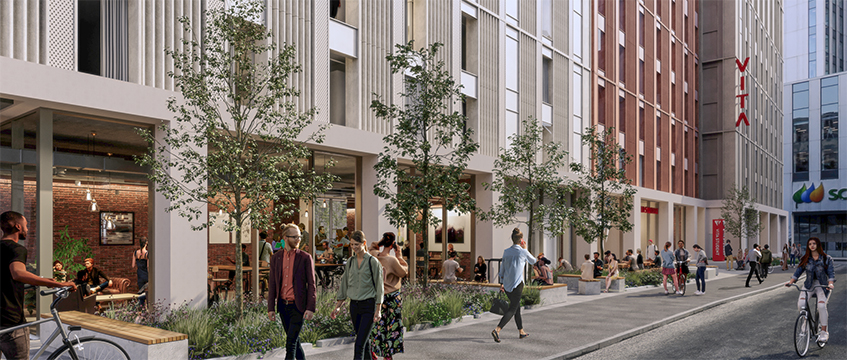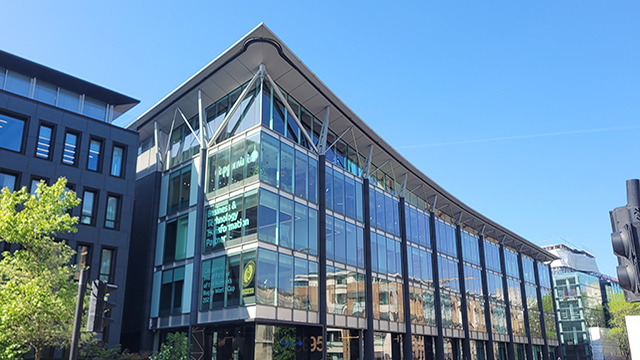Cutter and others v Pry Ltd
Collective enfranchisement – Leasehold Reform, Housing and Urban Development Act 1993 – Extent of premises to be enfranchised – Appellants seeking to acquire freehold of one of two blocks of flats on same site – Whether roadway, car parking spaces and gardens to be included under section 1(3)(b) of 1993 Act – Whether rights in lieu to be granted in terms proposed by respondent freeholder – Appeal dismissed
By an initial notice served under section 13 of the Leasehold Reform, Housing and Urban Development 1993, the appellants sought to acquire the freehold of a block of flats by collective enfranchisement under Chapter I of Part I of the Act. The appellants were the long leaseholders of three of the five flats in the block; there had originally been six flats but the first appellant’s flat had been formed by joining two flats together into one. The block was one of two on the same site of which the respondent was the freeholder.
In addition to the block itself, the appellants sought to acquire as appurtenant property other parts of the site including a roadway, car parking spaces and gardens. By its counternotice, the respondent disputed the appellants’ entitlement to acquire the additional property. It offered instead to grant leases of six carp parking spaces, in return for a payment of £10,000 per space, and a right of way over the roadway subject to the payment of “a fair proportion of the costs and expenses” of its maintenance. It offered no rights in respect of the gardens, on the grounds that the appellants were prohibited by the terms of their leases from entering the gardens notwithstanding that they were liable to contribute to the cost of their maintenance.
The matter was referred to the leasehold valuation tribunal (LVT), which held that the appellants were not entitled to acquire any additional land and that rights should instead be granted in the terms proposed by the respondent, including a small amendment to the wording of the right of way which the respondent had put forward at the hearing; this involved inserting the word “reasonable” before the word “costs”.
In relation to the car parking spaces, it held that the appellants were not entitled to acquire them under section 1(3)(b) of the 1993 Act as property that a tenant was “entitled under the terms of the lease of his flat to use in common with the occupiers of other premises”; it found that the relevant provision in the lease, granting the “right to park one private motor vehicle in such space forming part of the Development as the Landlord shall allocate from time to time” meant that each space was allocated to one tenant and was not used in common with the occupiers of other premises. The appellants appealed.
Collective enfranchisement – Leasehold Reform, Housing and Urban Development Act 1993 – Extent of premises to be enfranchised – Appellants seeking to acquire freehold of one of two blocks of flats on same site – Whether roadway, car parking spaces and gardens to be included under section 1(3)(b) of 1993 Act – Whether rights in lieu to be granted in terms proposed by respondent freeholder – Appeal dismissed By an initial notice served under section 13 of the Leasehold Reform, Housing and Urban Development 1993, the appellants sought to acquire the freehold of a block of flats by collective enfranchisement under Chapter I of Part I of the Act. The appellants were the long leaseholders of three of the five flats in the block; there had originally been six flats but the first appellant’s flat had been formed by joining two flats together into one. The block was one of two on the same site of which the respondent was the freeholder.In addition to the block itself, the appellants sought to acquire as appurtenant property other parts of the site including a roadway, car parking spaces and gardens. By its counternotice, the respondent disputed the appellants’ entitlement to acquire the additional property. It offered instead to grant leases of six carp parking spaces, in return for a payment of £10,000 per space, and a right of way over the roadway subject to the payment of “a fair proportion of the costs and expenses” of its maintenance. It offered no rights in respect of the gardens, on the grounds that the appellants were prohibited by the terms of their leases from entering the gardens notwithstanding that they were liable to contribute to the cost of their maintenance.The matter was referred to the leasehold valuation tribunal (LVT), which held that the appellants were not entitled to acquire any additional land and that rights should instead be granted in the terms proposed by the respondent, including a small amendment to the wording of the right of way which the respondent had put forward at the hearing; this involved inserting the word “reasonable” before the word “costs”.In relation to the car parking spaces, it held that the appellants were not entitled to acquire them under section 1(3)(b) of the 1993 Act as property that a tenant was “entitled under the terms of the lease of his flat to use in common with the occupiers of other premises”; it found that the relevant provision in the lease, granting the “right to park one private motor vehicle in such space forming part of the Development as the Landlord shall allocate from time to time” meant that each space was allocated to one tenant and was not used in common with the occupiers of other premises. The appellants appealed. Held: The appeal was dismissed. (1) The car parking spaces did not fall within the provisions of section 1(3)(b) of the 1993 Act since each allocated space was not used in common with the occupiers of other premises. The spaces did not form a common pool; instead, each space was allocated to one tenant, and each tenant had a right to park in a specifically marked space allocated by the respondent: Panagopoulos v Earl Cadogan [2010] EWCA Civ 1259; [2011] Ch 177; [2011] 1 EGLR 33; [2011] 02 EG 76 applied.(2) Nor were the appellants entitled to acquire the gardens under section 1(3)(b) since they were not property that the appellants, as nominee purchaser, were entitled to use in common with the occupiers of other premises under the terms of their leases. The leases contained an express prohibition on entering the gardens and the fact that the appellants were required to contribute to their maintenance was irrelevant to the determination of the Issue. The lease specifically provided that the restriction on entering the gardens was imposed in order to safeguard the privacy and enjoyment of all the other tenants in the blocks of flats, so that the tenants had the benefit of decorative or ornamental garden area. In those circumstances, the appellant were not entitled to “use” the gardens within the meaning of section 1(3)(b) of the 1993 Act. The fact that the gardens provided them with visual amenity did not mean that they “used” the gardens in the relevant sense.(3) It was permissible for the respondent to offer rights under section 1(4)(a) of the 1993 Act in lieu of the appellants acquiring the roadway and it was within the discretion of the LVT to allow the respondent to amend the rights offered at the hearing. The LVT had power to determine all the terms of acquisition under section 91(2) of the 1993 Act. It exercised a discretion in that regard and it was notable that there was no statutory constraint on that discretion in the event that the reversioner did not set out the rights offered in lieu of certain land under section 1(4). The amendment had resulted in no unfairness to the appellants. Sally Dobson, barrister










